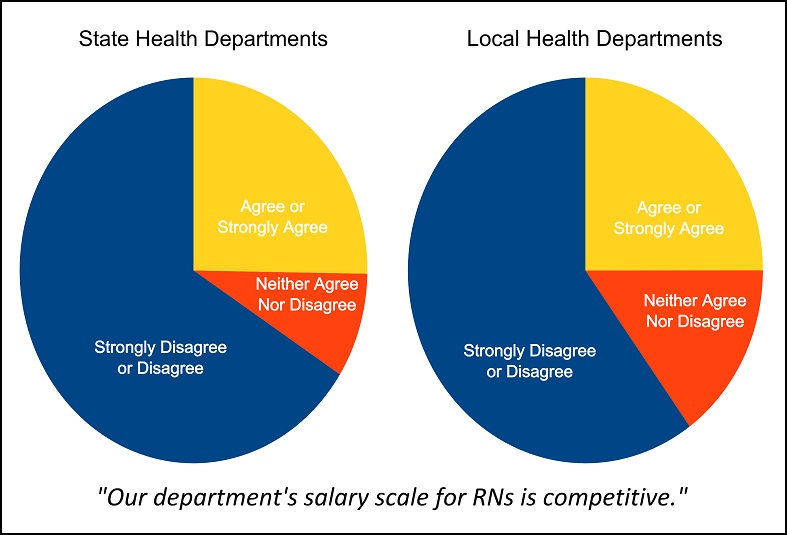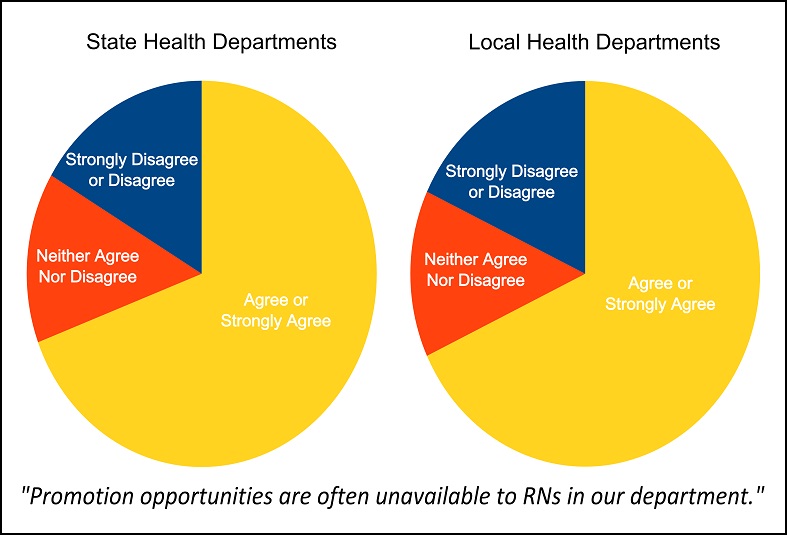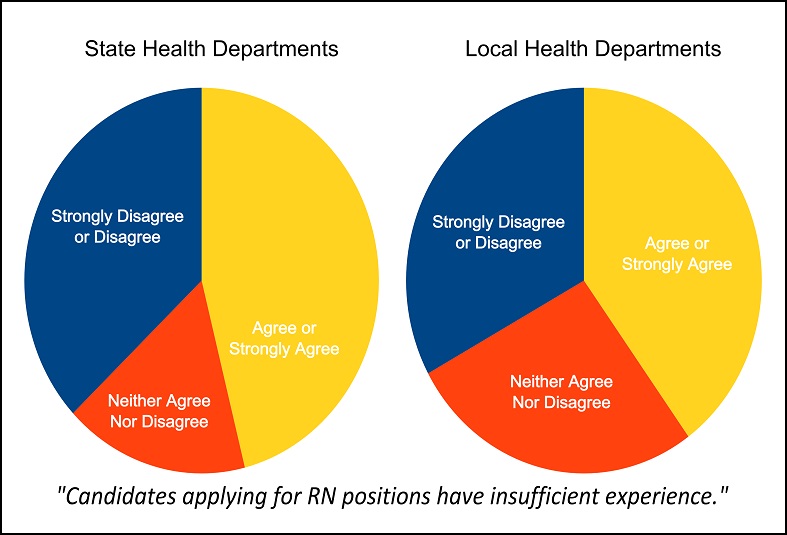A survey conducted by the University of Michigan to gather information about the education level and demographics of public health nurses (defined as Registered Nurses working for public health departments) shines some light on a problem: 43% of state and 23% of local health departments are having trouble filling vacant positions for RNs. In addition, 29% of state and 18% of local departments have trouble retaining the RNs that they do hire. Why is this happening? Let’s look at some more survey questions to find out.
Reason #1: Most Health Departments Don’t Offer a Competitive Salary

What do you look for when you’re deciding which jobs to apply for? Number one is salary, right? Even if you love the work, you don’t want to take a job that pays less than you’re worth. In the survey, state and local health departments were asked to agree or disagree with the following statement: “Our department’s salary scale for RNs is competitive.” 60% of the respondents disagreed. By their own admission, they don’t offer a competitive salary for the positions they’re trying to fill.
A comparison run on Indeed.com shows that RNs who work in public health make about 8% less than average. Perhaps if health departments were willing to pay more, they would be able to attract more applicants.
Reason #2: There is No Room for Advancement

Some people find a job they love and are content to do it for the rest of their lives. Others, however, are constantly driven to keep moving up the career ladder. What happens if there is nowhere left for them to go within the institutions they work for? They start looking for better opportunities elsewhere.
Reason #3: Experienced Registered Nurses Are Qualified for Better-Paying Jobs

So why is it that health departments have trouble getting experienced RNs to apply for their open positions? Could it be because they are already working elsewhere for more money in a position that offers plenty of opportunities for advancement? Unless they are really passionate about public health, they are not going to apply for a lower-paying, dead-end job. Lower-paying jobs belong at the bottom end of the career ladder, which could explain why so few experienced RNs apply for these positions.
You Have to Make the Job Appealing to the Applicants You Want to Attract
If you can’t offer a competitive salary or provide opportunities for advancement, you need to appeal to something less tangible but often more important?fulfillment. There’s a hidden jewel in this report, and it has to do with job satisfaction. Approximately 85% of the RNs surveyed are happy with their current jobs, and 90% feel that they are making a positive impact on community health. Around 83% reported that they are given a great deal of autonomy in their positions. These are all “feel-good” stats, that in the hands of a good copywriter, could be turned into job ads that attract just the kind of job applicants you’re looking for?in spite of the lower pay.
Sources:
- University of Michigan Center of Excellence in Public Health Workforce Studies. Enumeration and Characterization of the Public Nurse Workforce Surveys. Ann Arbor, MI: University of Michigan, 2013.
- Indeed.com salary comparison: http://www.indeed.com/salary?q1=registered+nurse&l1=&q2=public+health+registered+nurse&l2=&tm=1









